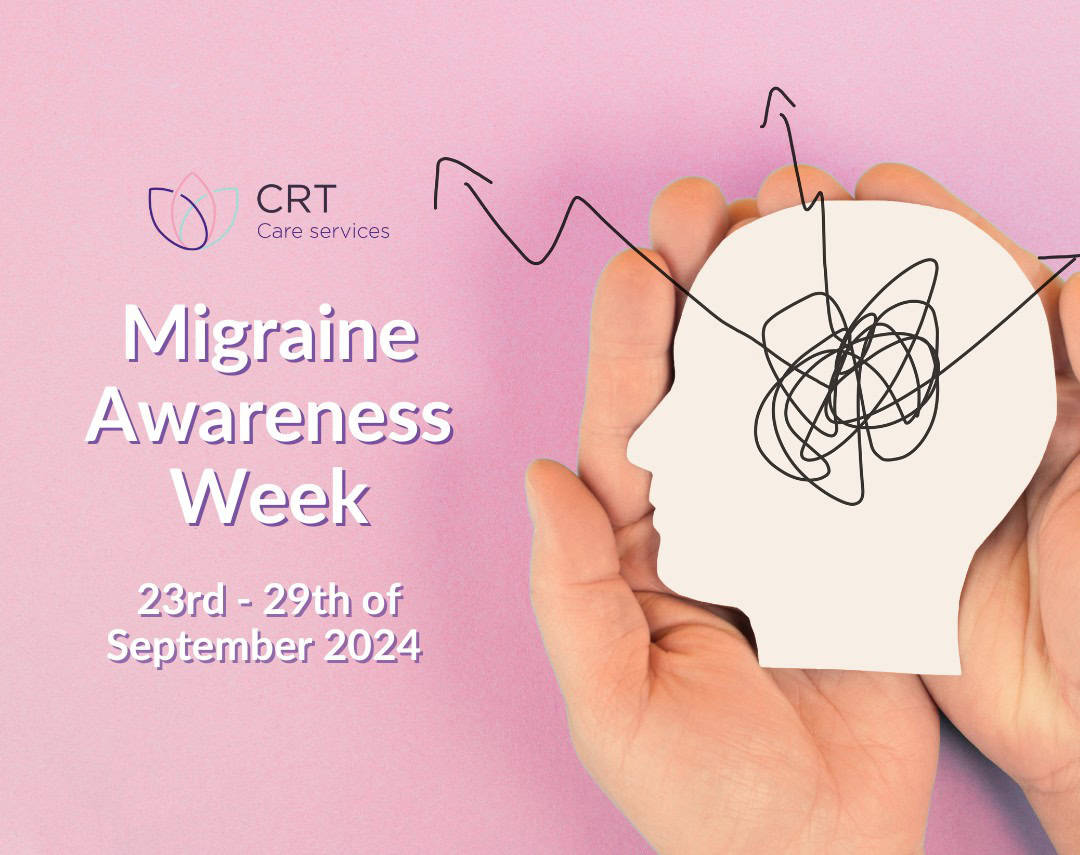The 23rd till the 29th of September 2024 marks Migraine Awareness Week. Migraines are the third most common disease in the world and affect approximately 1 in 7 people. They are described as “a complex and debilitating neurological disorder” and can significantly impact a person’s quality of life, affecting their mental health, relationships and work/education abilities.
What is a migraine?
Migraines aren’t just headaches and are much more severe. Like a headache, they are associated with head pain however they can cause much more problems than just this. Migraines can also cause problems with a person’s sight (for example can cause a person to see flashing lights), fatigue, sensitivity to light, sounds or smells and can cause a person to feel or be psychically sick.
When a person is suffering from a migraine, it is often referred to as a “migraine attack”. These attacks can last anywhere between 4 hours to 3 days. Sometimes there may be warning that these migraine attacks are going to happen, and symptoms can start 24 hours before the head pain. The symptoms may also take a while to stop and can last another 24 hours after the head pain finishes.
Types of migraines
There are many types of migraines however these are the most common:
- Migraines with aura (when a person experiences symptoms before the migraine starts).
- Migraines without aura (when there are no warning signs before the migraine).
What causes migraines?
It’s said that migraines are a result of abnormal brain activity which affects the nerve signals, chemical and blood vessels within the brain. There has also been research which suggests there may be a genetic link that could result in migraines.
Although this reasoning causes the migraines, they don’t start unless triggered by something. Migraines can be triggered by several factors including stress, low blood sugar, not eating enough, alcohol, hormonal changes (e.g. periods and menopause), lack of sleep or by your environment (e.g. lights being too bright or extreme temperatures).
Treatments for migraines
Treatments can depend on a variety of factors, such as the type of migraine, symptoms you’re experiencing, medication history and more. Taking painkillers is an easy solution to help you get rid of the head pain you’re experiencing. You can also take anti-sickness medication if you’re experiencing sickness as one of your symptoms.
Although these may soothe the discomfort, they are only a short-term solution. It is encouraged that if you are experiencing more than 4 migraine attacks a month, you should contact your GP for preventative treatment, so you can stop experiencing migraines altogether.
Information taken from:
http://migrainetrust.org/understand-migraine/what-is-migraine/








